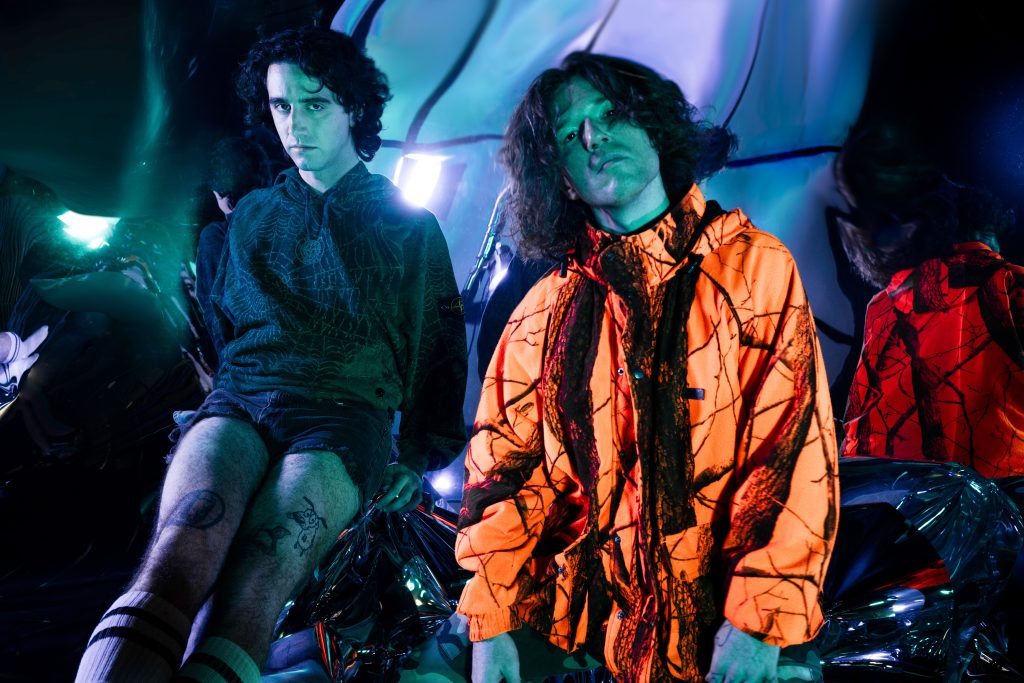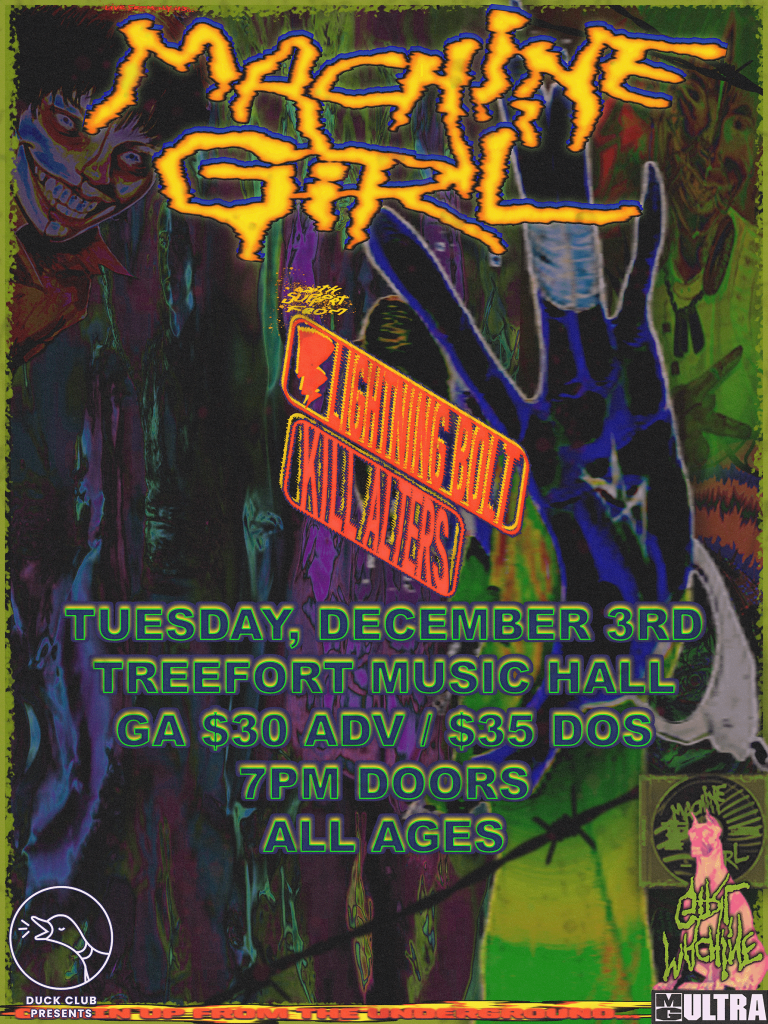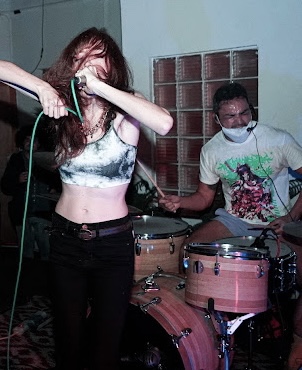MACHINE GIRL
Tuesday, December 3rd, 2024



The Machine Girl project infiltrates every type of freak; ravers, punks, noisers, footworkists, metal fans, gamers, h/c kids, goth/industrialists and everything in between. Infamous for their cathartic, unpredictable performances and genre-agnostic catalog, the project’s vitriolic, organic following has developed through a sense of sonic maximalism and anime/B-horror visual flair. Machine Girl lore juxtaposes whether the picture painted is that of reality, a fantastical escape, or a jarring future.

Lightning Bolt
Bridging the worlds of technical playing and noise chaos with a color and imagination unlike any other band, Providence, Rhode Island duo Lightning Bolt began their hypnotic pummeling in the mid-’90s and grew to become one of the most powerful and unique entities in the indie scene. Barely recognizable bass tones and unrelenting drums played in telekinetic lockstep defined the band’s sound on albums like their 2003 high-water mark Wonderful Rainbow.
Lightning Bolt first took shape in 1995 as a three-piece art school project. Initially, Brian Chippendale‘s explosive, nonstop drumming, Brian Gibson’s Contortions-like basslines, and Hisham Baroocha’s vocals propelled them into a fury of volatile noise and orgiastic tribalism. The group helped found Fort Thunder, a music and art collective, and recorded a self-titled album that was issued through Load in 1999. By 2001’s Ride the Skies, Baroocha had departed (he eventually formed Black Dice). This left the vocal duties to Chippendale, who jammed the microphone into his mouth as he drummed. Lightning Bolt played a series of tours with bands like the Locust, Arab on Radar, Orchid, and Melt Banana, some of which were the focus of band documentary The Power of Salad, a 2003 film directed by Peter Glantz and Nick Noe.
Their next studio album, Wonderful Rainbow, embraced a more demented approach to traditional rock forms. The record did very well in underground music circles and set up the release of 2005’s Hypermagic Mountain. Lightning Bolt toured frequently, but didn’t return to the studio until 2009’s Earthly Delights, which was followed in 2012 by mini-album Oblivion Hunter, comprised mainly of archival recordings unearthed and cleaned up for release. Though they were still touring sporadically, both Gibson and Chippendale were busy with various other projects, ranging from Gibson’s involvement with doom metal band Megasus to Chippendale‘s growing art career and prolific solo project Black Pus.
Lightning Bolt returned in 2015 with sixth album Fantasy Empire, their first new material in over five years and their first music recorded in a fully functional, high-end recording studio. After a similarly lengthy four-year break, the duo released their seventh LP, Sonic Citadel, in October 2019. ~ Daphne Carr, Rovi

Kill Alters
The dense compositions of NYC-based trio Kill Alters crash into you as a glorious mess of hyperactive vocal lines, pulsing electronic textures, and interwoven percussion patterns. Primary composer and producer Bonnie Baxter leads the band with her impassioned vocal performances, pummeling drum machine beats, and peals of chaotic synthesis. In addition to Kill Alters, Baxter has released solo albums and is 1/2 of the duo Prolaps alongside Machine Girls’ Matthew Stephenson. In Kill Alters, Nicos Kennedy serves as the project’s co-producer/mixer, sound engineer, and synthesist, both shaping their sound in the context of performance and rendering their final recorded output in all its overloaded detail. Hisham Bharoocha (formerly of seminal US underground projects Lightning Bolt and Black Dice, and a solo artist under the Soft Circle moniker) provides his signature battering ram drum performances, which collide with electronic percussion elements to animate the band’s ballistic compositions both on record and in the context of their live shows.
Baxter and Kennedy started the Kill Alters project as an outlet to recontextualize the audio from an archive of home-recorded tapes made by Baxter’s mother, which date from the 1970s through the 1990s. The care and the vulnerability with which Kill Alters infuses their music with these archival recordings recasts the trauma and confusion documented within them as a source from which to draw power and achieve a new sense of clarity.







